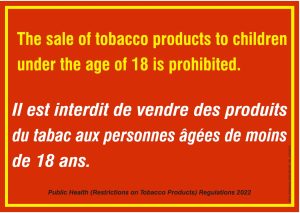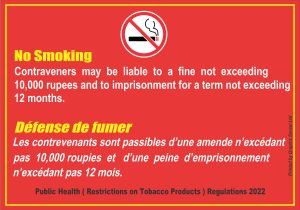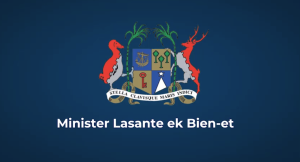Ministry of Health and Wellness
Latest News

No Sales to Minors
The sale of tobacco products to children under the age of 18 is prohibited. No sales to Minor Sticker

Stickers for No Smoking
Contraveners may be liable to a fine not exceeding 10,000 rupees and to imprisonment for a term not exceeding 12 months Stickers No Smoking Sticker
Communique
April 23, 2025
April 9, 2025
April 9, 2025
April 9, 2025

Virtual Health Library
Discover the Virtual Health Library of Mauritius

Health Map
Discover the health services points by region

Pharmacy council
Discover more on Pharmacy Council of Mauritius

DCCB
The Dangerous Chemical Control Board

Food Handler's Certificate
Discover the Food Handler's Certificate

Food Import Unit
Discover the Food Import Unit
Contact us
Quick Links
Ministry of Health & Wellness
Level 4,
Nexsky Building, Ebene.
Tel: 490 4200






